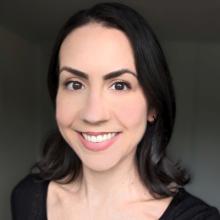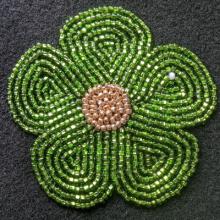Cheryl Inkster
Why did you decide to pursue a graduate degree?
Continuing my education and pursuing a Ph.D. in counseling psychology will provide me with the opportunity to deepen my knowledge, expand my research skills, and amplify my ability to make a positive impact. It can equip me with the necessary tools to bridge the gap between research and practice, ultimately leading to more effective and culturally sensitive support for Indigenous communities. Education has changed my life and I want to use what I have learned to help others improve their mental health and well-being and specifically support Indigenous communities. Pursuing a Ph.D. in counselling psychology will open up a range of opportunities for me including working as a licensed psychologist, engaging in private practice, pursuing academic positions, and possibly contributing to policy development.
Why did you decide to study at UBC?
UBC is one of the leading research institutions in the province and the only one in the Lower Mainland that offers my program of study. Pursuing my studies at UBC grants me the invaluable opportunity to collaborate with esteemed supervisors who I deeply admire and trust to guide me through every step of my doctoral journey.
What is it specifically, that your program offers, that attracted you?
My program is accredited by the Canadian Psychological Association (CPA) and I am confident that my education at UBC will equip me with the skills to be a professional psychologist and researcher.
What was the best surprise about UBC or life in Vancouver?
Being able to pursue my Ph.D. at UBC allows me to stay in my hometown of Vancouver and allows me to maintain a strong connection to my community, friends, and family. I am grateful to study and live on Coast Salish territory. Being able to remain in Vancouver allows me to have a fulfilling academic journey while staying rooted in the place I call home.
What aspect of your graduate program do you enjoy the most or are looking forward to with the greatest curiosity?
I look forward to completing my internship where I will have the invaluable opportunity to put into practice all that I have learned. This hands-on experience will be a pivotal moment for me, allowing me to apply the knowledge and skills I have acquired throughout my academic journey.
What aspects of your life or career before now have best prepared you for your UBC graduate program?
My previous experience as a youth worker and my academic achievements in the field of Child and Youth Care provide me with a strong foundation to make a meaningful impact in my UBC graduate program. I have a passion for supporting Indigenous communities, particularly Indigenous youth in care. Prior to pursuing graduate school, I dedicated several years to working as a youth worker within the youth justice and child welfare systems. Witnessing firsthand the profound influence of education on the pivotal decisions of children and youth, I became motivated to make a practical impact through my research, specifically in support of my Métis community. Education has been transformative in my own life, inspiring me to utilize the knowledge I have gained to support Indigenous communities. I have a Master's Degree from Simon Fraser University, a Bachelor's Degree in Child and Youth Care from Douglas College, and a Diploma in Youth Justice from Douglas College. Before going to graduate school, I worked as a youth worker, primarily supporting Indigenous youth from various regions across British Columbia and the Northwest Territories. Many of these youth had been relocated to the Lower Mainland while in care, presenting unique challenges in helping them adapt to their new environment and maintaining connections with their home communities, which were often geographically distant. It was this experience that inspired me to pursue a master's degree and conduct research on the relocation experiences of Indigenous youth in care. In my master's research, I conducted insightful interviews with Indigenous youth who identified as female, delving into their encounters with relocation while in care and the subsequent impact on their cultural connections. Building upon this foundation, my current research delves into the experiences of Métis youth in care, specifically exploring their cultural engagement through beadwork as a means of supporting their mental health and overall well-being and enhancing their connection to their culture.
What do you like to do for fun or relaxation?
For fun, I like to hike, play piano, spend time with my family, and read. I am also part of an awesome community choir!
What advice do you have for new graduate students?
Find a balance. Balancing academic work, personal life, and self-care is essential. Be mindful of setting boundaries and creating a schedule that allows for a healthy balance. Remember that productivity doesn't always mean working long hours but rather working efficiently and effectively. Taking care of your physical and mental well-being is crucial for maintaining a healthy balance. Take it one day at a time. The workload in graduate school can sometimes feel overwhelming. Break tasks into smaller, manageable steps, and focus on one day at a time. Prioritize your tasks and avoid unnecessary stress. Take advantage of the services and resources offered by UBC to support graduate students. Remember, every graduate student's journey is unique, and it's important to find what works best for you. Believe in your abilities. You've got this!


